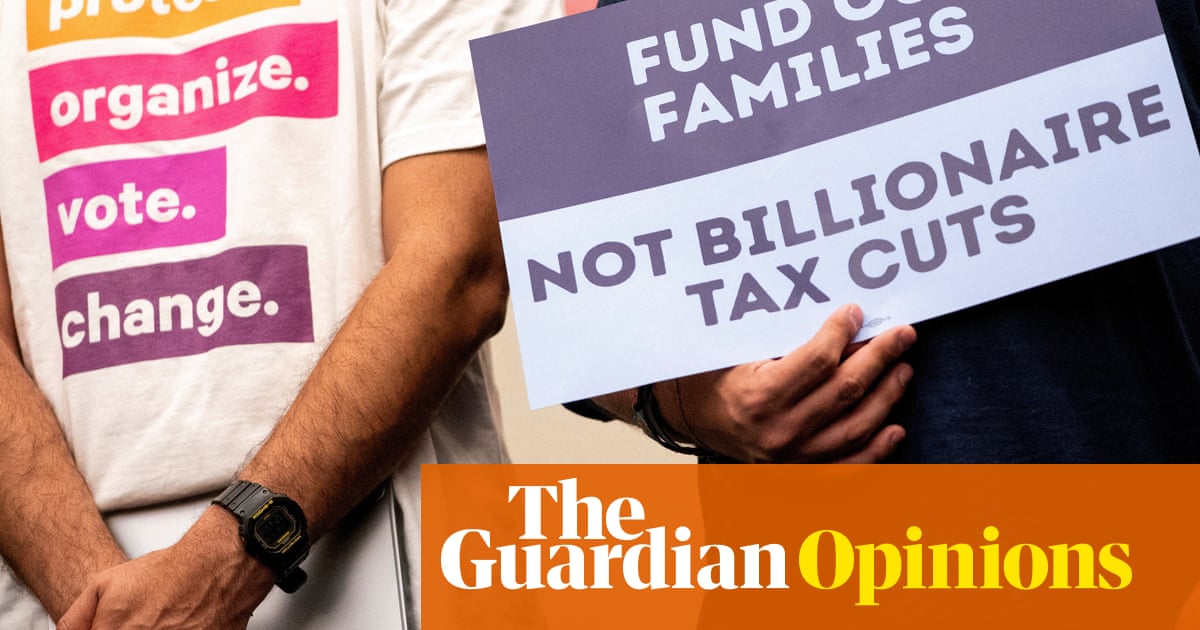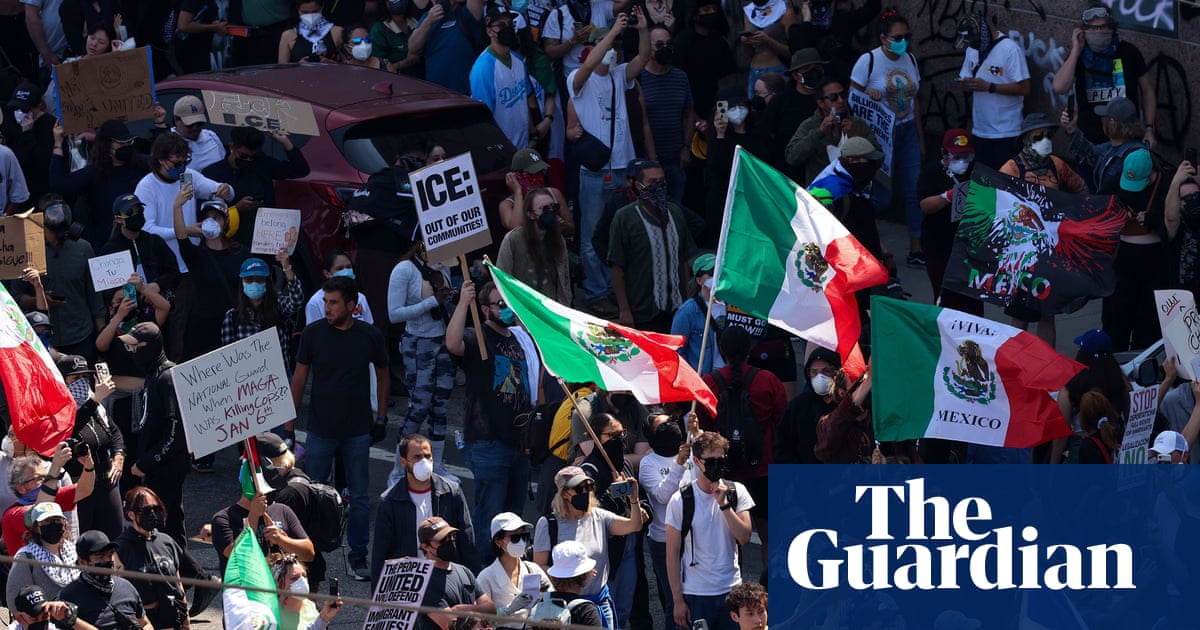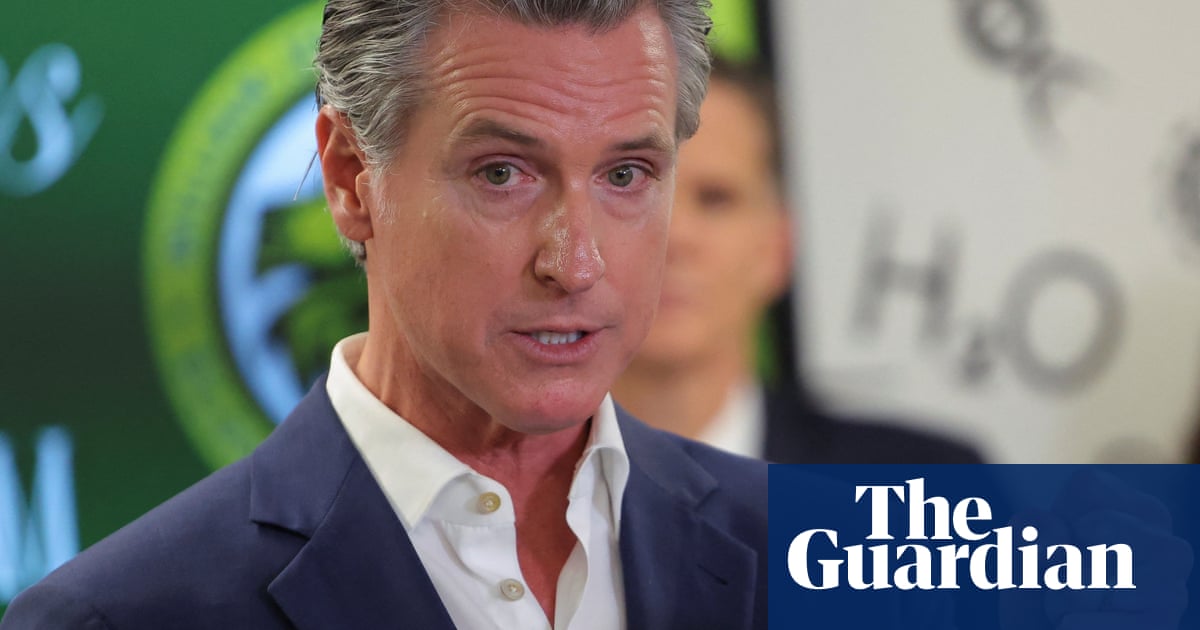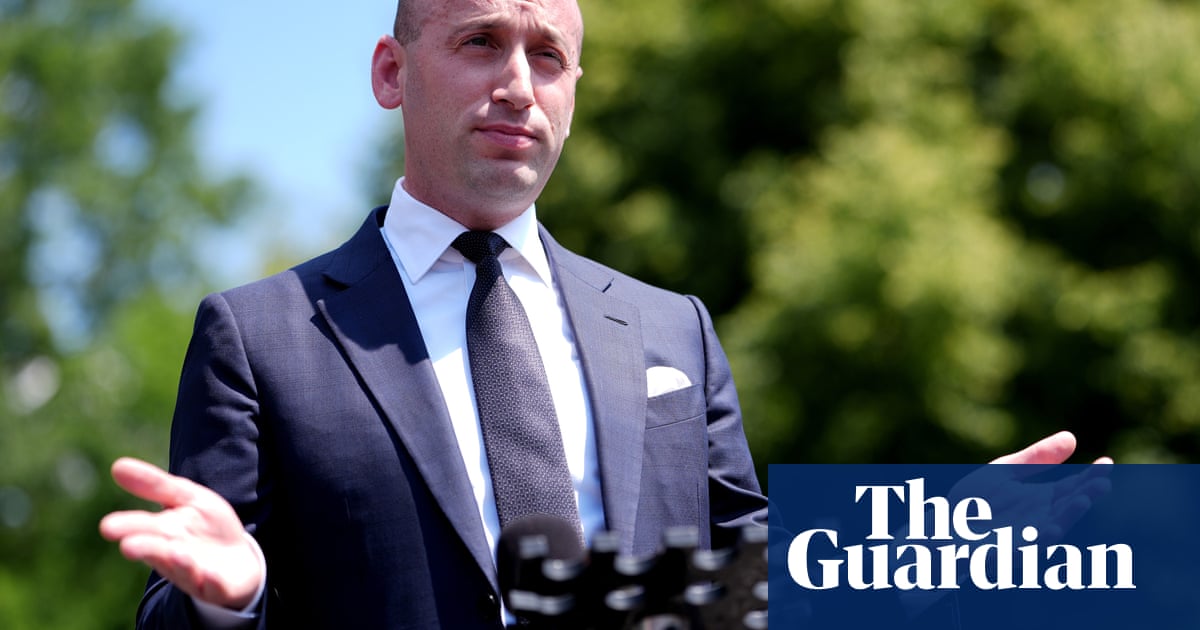Thinking about the constant stream of news about Elon Musk, one is tempted to adapt two of the most famous sentences from American literature. William Faulkner wrote: “The past is never dead. It’s not even past.” What comes to mind about Musk is: “He is not gone forever. He has not even left.”
It is profoundly misleading to frame Musk’s departure this past week as “disappointed reformer quits after finding it impossible to make bureaucracy efficient”, just as it is wrong to think of this week’s rift as “Trump regime changes direction”. After all, Musk’s people are still there; and Musk-ism – understood as the wanton destruction of state capacity and cruel attacks on the poorest – will continue on … what’s the drug appropriate to mention here? Steroids? Not least, Trump’s and Musk’s fates remain entwined.
Plenty of personnel beholden to Musk are still around and doubling down on their chainsaw massacre. Continuing deregulation is still very much to Musk’s and other oligarchs’ liking. There is no dearth of bizarre Musk pronouncements about the universe, but his claim that the Doge ethos is like Buddhism must be somewhere near the top. Yet it reveals a truth: the mentality of blissfully destroying state capacity will persist, except that the practice is likely to become more systematic and less prone to PR statements about “savings” that can easily be debunked. Russell Vought, who directs the office of management and budget, knows what he is doing and has long been preparing to use “executive tools” creatively – read: illegally, according to plenty of constitutional lawyers. The level of cruelty is not much different from Musk’s “feeding USAID into the wood chipper”, but the process may well become smoother and less visible.
After all, Musk’s own criticism of the budget is that it did not cut enough. The most sycophantic members of the Trump cult – such as the representative Andy Ogles – say the same: the bill is “not beautiful yet”; only senators making further cuts can make it so. As one of the world’s most influential political scientists, Adam Przeworski, has pointed out, budgets like this do not get passed under democratic conditions unless there is a major crisis (juntas in Chile and Argentina could make cuts of a similar magnitude with impunity). The potential damage to low-income families – not to speak of science – is so enormous that Reagan and Thatcher look like democratic socialists by comparison.
The Trump-Musk rift will reveal much about what kind of regime the Trumpists are really creating, and how far governing as a form of personal revenge might be pushed. In principle, mutual vulnerability remains. Trump still has reasons to welcome help from Musk’s platform – and his money. The US is relying on SpaceX and Starlink in ways that give Musk leverage. Conversely, though, no matter how big the platform, a state can always pull the plug through regulation. Most important, Musk and Trump might know things about one another that should not become public.
This, after all, is the underlying logic of what the Hungarian sociologist Bálint Magyar has theorized as a “mafia state”. In such a state, benefits go to what Magyar calls a “political family” (in Trump’s case, it of course includes the biological family); but in return there has to be absolute loyalty and omertà. A mafia state resembles Hotel California: you can officially check out, but you can never leave.
This does not mean that nobody ever tries. Yet in conflicts between autocrats and a defecting oligarch, the latter tends to lose. Putin subjugated oligarchs who showed streaks of independence; Orbán defeated his former ally Lajos Simicska. When the latter broke with the Hungarian prime minister in 2015, opposition figures were giddy with excitement about juicy revelations and regime infighting. But financing big PR campaigns about corruption and an anti-Orbán party, as well as a large media empire, were not enough; today, the former oligarch concentrates on farming in western Hungary.
Many commentators have called for inflicting reputational damage on Musk. It clearly has been an advantage for those willing to protest the Trump regime that Tesla provided a focal point for concrete action; it is much more difficult to rally against cabinet members who do not happen to have a dealership down the road, but rather abstract things like hedge funds.
More important still are investigations, starting with the simple – but still unanswered – questions about who actually runs Doge, how it is structured and on what legal basis its actions proceed (the fact that the chair of the Doge caucus in the House keeps touting the entity’s commitment to “turning transparency into action” only adds insult to injury). If Congress ever rediscovers Article 1 of the constitution, and its duties of oversight in particular, it should not just hold hearings, but produce an analytical record of how an individual – unelected and supposedly without holding any office – could simply be handed a chainsaw and a key to all our data (a golden key was indeed a fitting gift from Trump). It will be difficult – in some cases, impossible – to undo the damage Musk and allies have caused; it will take less effort to dismantle the myth of “if only a business genius ran government, all would be well”. After all, evidence of how things turned out will be there.
-
Jan-Werner Müller is a Guardian US columnist and a professor of politics at Princeton University

 German (DE)
German (DE)  English (US)
English (US)  Spanish (ES)
Spanish (ES)  French (FR)
French (FR)  Hindi (IN)
Hindi (IN)  Italian (IT)
Italian (IT)  Russian (RU)
Russian (RU)  5 hours ago
5 hours ago
























Comments